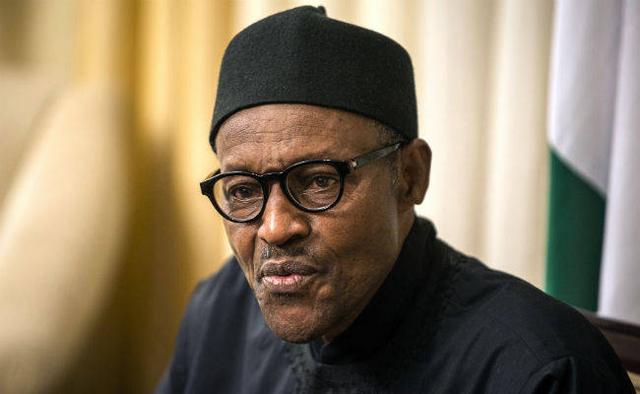
Abuja, Nigeria | AFP |
Nigeria’s President Muhammadu Buhari is apparently unwell. Or he might not be. Either way, it’s enough for his health to have increasingly become a national talking point.
The 74-year-old former army general had been due to resume work on Monday morning in the capital, Abuja, after a holiday in London.
But on Sunday evening, his office announced he was to prolong his stay on doctor’s orders, as he was still waiting for the results of medical tests conducted during his stay.
No further details were given about his condition nor when he would finally return.
The announcement triggered fresh speculation about the state of Buhari’s health and has done little to convince an already sceptical public that there is no cause for concern.
Vice President Yemi Osinbajo, who has been holding the fort since Buhari left for London two weeks ago, told reporters in Abuja on Monday that his boss was well.
“The president is hale and hearty. I spoke to the president just this afternoon and we had a warm conversation,” he said.
“He was interested in knowing about the budget process and how far we have gone and the meeting today with the private sector and the economic recovery growth plan and I informed him about the protest march and feedback about what people are saying about the economy. He is in good shape.”
Buhari’s office has already had to counter rumours during the trip that he was critically ill and had even died.
– In the dark –
The main opposition Peoples Democratic Party (PDP) seized on the announcement of his extended stay in London, saying Nigerians had a right to know what he was being treated for because he was using public funds.
“He should tell them (the public) the true state of his health,” a statesman for the PDP was quoted as saying in the Punch newspaper.
“Medical tests have dates of collection of results. It can’t be open-ended without dates.”
In Abuja, where protesters had turned out to demonstrate against Buhari’s economic policy and call for solutions to end a crippling recession, there were calls for greater openness.
“I wonder why the government is not transparent enough about our president’s health,” said one woman, who gave her name only as Mabel. “We are completely in the dark.”
James Badmus, a lawyer, added: “The issues are clear and straightforward: what exactly is wrong with our president and for how long is he going to be away?
“Anybody can fall sick but when a president falls sick, it should not be a confidential matter.”
– Spectre of Yar’Adua –
The health of Nigeria’s head of state has long been a sensitive issue. In 2010, president Umaru Yar’Adua died from a long-standing, but undisclosed kidney condition, while in Saudi Arabia.
His initial illness and treatment in hospital abroad triggered months of political uncertainty. Yar’Adua’s death brought his deputy, Goodluck Jonathan, to power.
To be sure, Buhari’s presidency has not hidden the fact that he needed medical treatment: in June 2016, it said he was heading to London for treatment to a persistent inner ear infection.
It also announced last month that his latest trip would include “routine medical check-ups”.
But Buhari and his All Progressives Congress (APC) have been unable to shake off persistent rumours that he is more seriously ill than is being made out.
The PDP claimed during the 2015 election in which Buhari defeated Jonathan that he had terminal prostate cancer — one of a series of smears designed to show he was unfit for office.
One of Buhari’s spokesmen, Femi Adesina, on Sunday tried to play down the significance of the extension, as Nigerians took to social media to air their theories.
“I am sure it will get to a point when the president has to disclose the status of his health if it needs to be disclosed,” he said.
But because of doctor-patient confidentiality, only Buhari himself could reveal what was wrong, he said.
– Open government –
Nigerians are generally mistrustful of government and its pronouncements. They also have long memories that go back beyond Yar’Adua to military ruler Sani Abacha, who also died in office.
“My concern is that I hope history is not going to repeat itself,” said one civil servant, who gave his name only as Adam. “The Yar’Adua episode is still fresh in our memory.
“They told us Yar’Adua was OK.”
Victor Giwa, of the Advocates for Peoples’ Rights and Justice pressure group, said the public had a right to know if the president was unwell.
“If they cannot tell us the health status of the president, it shows there are many things they have been hiding from us,” he added.
 The Independent Uganda: You get the Truth we Pay the Price
The Independent Uganda: You get the Truth we Pay the Price


